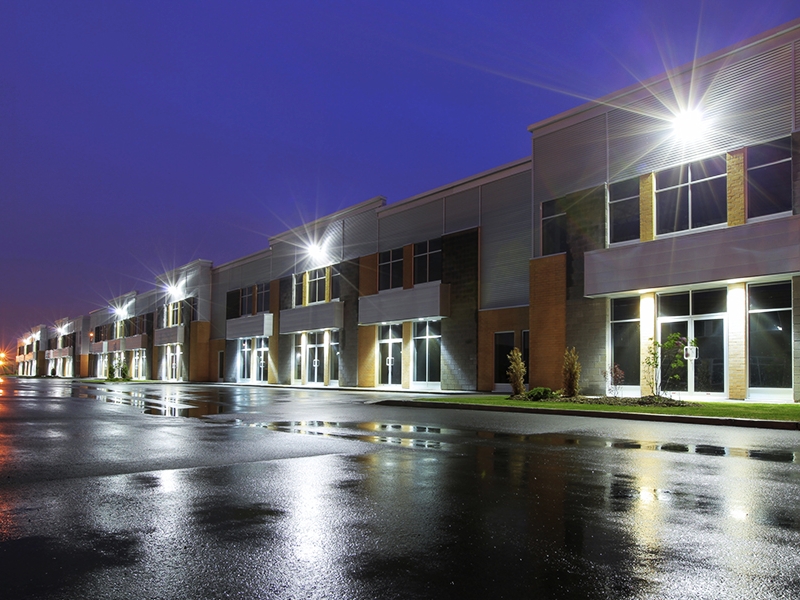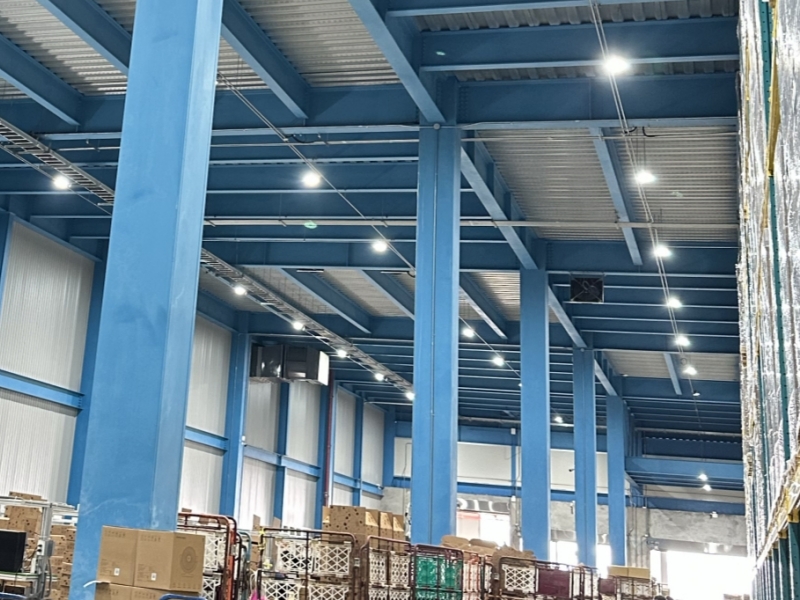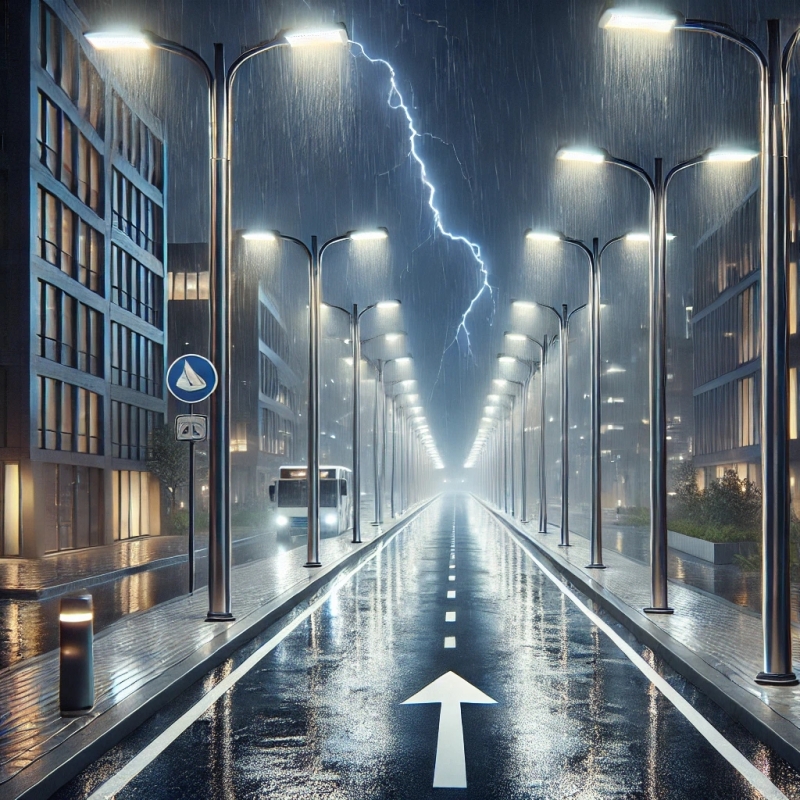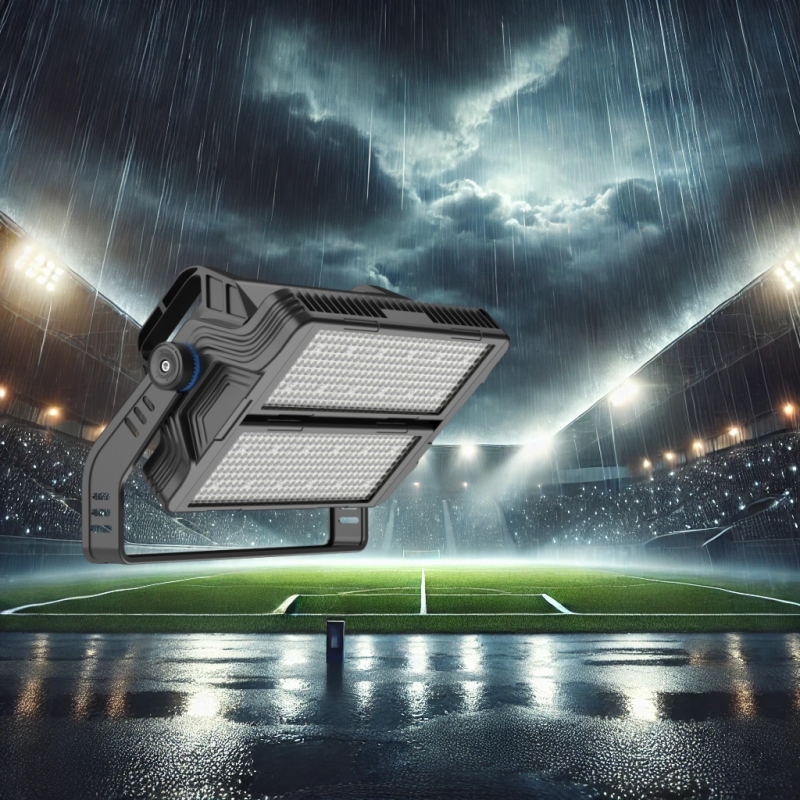What are the waterproof and dustproof ratings for industrial and outdoor lighting?
When customers ask if our lights can survive rainstorms or dusty warehouses, they're really asking about IP ratings1. But what do these codes actually mean?
The waterproof and dustproof ratings for industrial and outdoor LED lights are represented by IP (Ingress Protection) codes, which indicate the level of protection against solid objects like dust and liquids like water. IP652, IP663, and IP67 are the most common ratings.
Understanding these codes helps customers choose the right light for the right environment.
What does the IPXX standard mean?
Many people see “IP65” or “IP66” on product specs, but don’t know what it really means. IP ratings follow an international standard.
IP stands for "Ingress Protection". The first digit refers to protection against solid particles like dust, and the second digit refers to protection against liquids like water. The higher the numbers, the better the protection.
Once you understand how the numbers work, it's easier to know what kind of environment the product can handle.
Breakdown of IP Code Structure
| IP Rating | First Digit Meaning (Solids) | Second Digit Meaning (Liquids) |
|---|---|---|
| IP6X | Completely dust-tight | - |
| IPX5 | - | Protected from water jets |
| IPX6 | - | Protected from strong water jets |
| IPX7 | - | Protected from immersion (1m) |
First Digit – Protection Against Solid Objects
| Digit | Protection Level | Example Use Case |
|---|---|---|
| 0 | No protection | Indoor use only |
| 1-2 | Large particles, basic touch | Basic enclosures |
| 3-4 | Tools, wires, and small parts | Workshops, light machinery |
| 5 | Dust protected (some ingress) | General outdoor use |
| 6 | Dust tight (no ingress) | Industrial, harsh outdoor environments |
Second Digit – Protection Against Liquids
| Digit | Protection Level | Example Use Case |
|---|---|---|
| 0 | No protection | Dry indoor environments |
| 1-2 | Dripping water | Basic enclosures under roofs |
| 3-4 | Splashing or spraying water | Light outdoor exposure |
| 5 | Water jets | Outdoor use with rain or cleaning |
| 6 | Powerful water jets | Stadiums, tunnels, high exposure zones |
| 7 | Immersion up to 1m | Flood-prone areas, marine applications |
Why This Matters in Lighting
When selecting LED lighting for industrial or outdoor environments, these ratings help me explain which product fits best. For example:
- A warehouse with dust but no water? IP65.
- A port or football stadium? IP66.
- A car wash facility? Consider IP67.
What are the waterproof and dustproof ratings for LED High Bay Lights?
If you’re installing lights in a dusty warehouse or humid factory, you can’t afford failures. The right protection rating makes all the difference.
Most LED High Bay Lights are designed with an IP65 rating, which means they are dust-tight and protected against low-pressure water jets. This makes them suitable for most industrial indoor environments.
Dust and humidity are common in industrial areas. You need fixtures that keep working, no matter what.
IP Rating Breakdown
| IP Rating | Solid Protection | Liquid Protection | Suitable Environment |
|---|---|---|---|
| IP65 | Dust tight | Water jets | Indoor industrial, warehouses |
| IP66 | Dust tight | Strong jets | Heavy industrial, outdoor under roof |
| IP67 | Dust tight | Immersion (up to 1m) | Car washes, food processing |
Why IP65 is Enough for Most High Bays
In my experience, IP65 is usually the sweet spot. It’s protected well enough for most environments without the extra cost of higher IP ratings. Unless you're in a facility where the lights are hosed down or exposed to chemicals, IP65 works perfectly.
What are the waterproof and dustproof ratings for LED Street Lights?
City streets don’t offer shelter. Rain, wind, and dust are daily battles. So street lights need a tough shell.
LED Street Lights are commonly rated IP66, which offers complete dust protection and resistance to powerful water jets. This ensures long-term outdoor reliability in harsh weather.
No one wants to replace street lights often. That’s why IP66 is the industry standard.
IP66 in Real Life
- Dust Resistance: Sandstorms, roadside dirt, and construction zones don’t interfere with operation.
- Water Resistance: Street lights often face rain from every direction. IP66 ensures that heavy rain or splashing from vehicles won’t short the circuit.
My Thoughts
We once supplied LED street lights to a coastal city. The salty air, wind, and fog made maintenance a nightmare for them before switching to our IP66-rated units. After two years, they’ve seen near-zero failures.
What are the waterproof and dustproof ratings for LED Flood Lights, Sports Lights, and High Mast Lights?
These lights are installed in places where there's no roof, no protection. Think stadiums, ports, airports. They're built to battle nature every day.
LED Flood Lights, Sports Lights, and High Mast Lights usually come with an IP66 rating. These offer full protection against dust and high-pressure water jets, suitable for most harsh outdoor environments.
If it’s exposed to the sky, go for higher protection.
Comparison Table
| Product Type | Typical IP Rating | Environment |
|---|---|---|
| LED Flood Light | IP66 | Building façade, parking lots |
| LED Sports Light | IP66 | Stadiums, arenas |
| High Mast Light | IP66 | Airports, ports, highways |
Why IP66 Works for Stadiums and Ports
These lights sit tens of meters above ground. Maintenance is expensive. That’s why durability matters. IP66 ensures that driving rain and dust storms don’t damage the fixture. It's the best balance between protection and cost-efficiency.
My Experience
A client in the Australia once asked us for stadium lighting that could survive sandstorms and extreme rains. We customized our sports light to IP66. Two years later, they still send us thank-you notes.
Conclusion
Understanding the IPXX standard helps customers pick the right lighting. With the right rating, our lights last longer, perform better, and save maintenance costs.
-
Explore this resource to understand how IP ratings determine the suitability of lighting for various environments, ensuring you make informed choices. ↩
-
Learn about the IP65 rating to see why it's often the best choice for industrial settings, balancing protection and cost. ↩
-
Discover why IP66 is crucial for outdoor lighting applications, ensuring durability against harsh weather conditions. ↩













